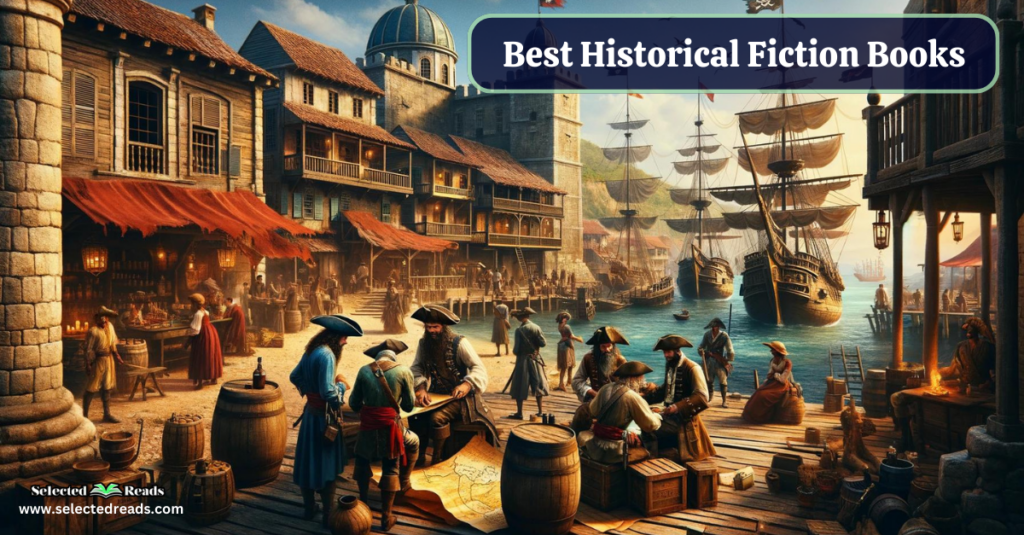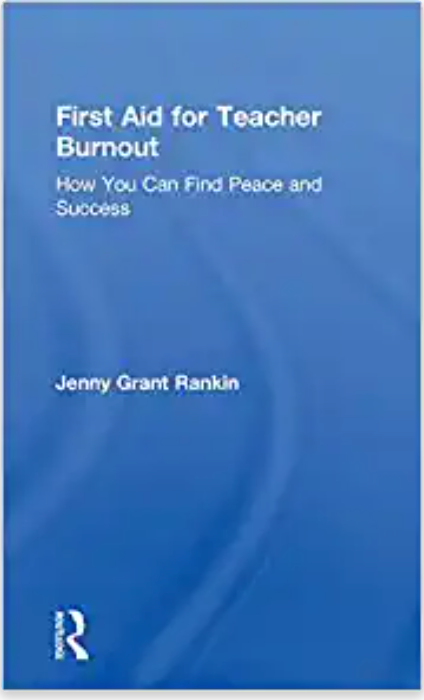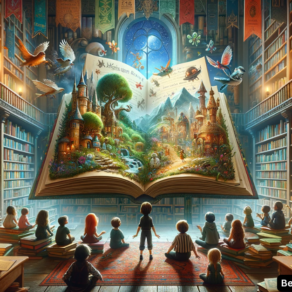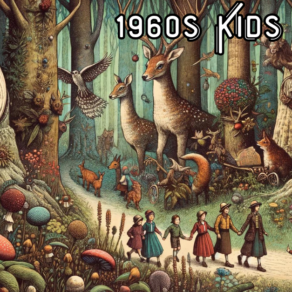Exploring the past can often provide a profound understanding of the present, and there’s no richer way to embark on this journey than through the pages of historical fiction books. Such narratives have the power to transport us across the expanse of time, inviting us to live vicariously through characters who navigate the complex tapestries of yesteryears.
This curation of historical fiction books isn’t born from mere whimsy but is meticulously compiled from recommendations by authoritative sources revered in the literary world. Esteemed institutions like Barnes & Noble and The New York Times, along with reader-centric platforms like Goodreads and Bookriot, have lent their voices to shape this list.
Further credibility is added by literary experts from ProWritingAid and Pan Macmillan, ensuring that every title echoes with authenticity and richness. Here, we present to you a collection of works that not only recount history but are themselves poised to become a part of it.
What is Historical Fiction?
Historical fiction is a genre of fiction that is set in the past and typically draws on real events, characters, and places to tell a story. It often examines themes and issues from the time period that may still be relevant today. Historical fiction can range from light-hearted stories to serious examinations of difficult aspects of a culture or a civilization’s history.
Best Historical Fiction Books
Here is our list of the best historical fiction Books:
1. War and Peace, Leo Tolstoy (1869)
“War and Peace” by Leo Tolstoy is not merely a book but an experience, where the grand tapestry of history, philosophy, and romance intertwine. The novel sweeps across the epic backdrop of Napoleon’s invasion of Russia, following the intertwined destinies of Pierre Bezukhov, a man on a quest for spiritual fulfillment; Prince Andrei Bolkonsky, who leaves his family to fight in the war; and Natasha Rostov, whose beauty and spirit affect both men deeply. Tolstoy’s masterpiece is a study of life and its complexities, set against the monumental events of war and peace.
2. A Tale of Two Cities, Charles Dickens (1859)
Charles Dickens’ “A Tale of Two Cities” is a profound narrative set against the tumultuous backdrop of the French Revolution. It’s a story of contrasts: love and sacrifice, tyranny and liberation, revenge and redemption. Following Dr. Manette’s release from the Bastille and his reunion with his daughter Lucie, the novel explores the depths of human character in times of societal upheaval. Dickens weaves a tale that is as much a historical document as it is a compelling story of resilience and the human spirit.
3. Gone with the Wind, Margaret Mitchell (1936)
Margaret Mitchell’s “Gone with the Wind” is a sweeping saga of love, war, and survival set in the American South during the Civil War and Reconstruction Era. It follows Scarlett O’Hara, a headstrong Southern belle who faces the collapse of the world she knows with indomitable spirit. Through Scarlett’s eyes, the novel paints a vivid portrait of a society undergoing dramatic changes, where personal determination can either be a means of salvation or self-destruction.
4. Things Fall Apart, Chinua Achebe (1958)
“Things Fall Apart” by Chinua Achebe is a powerful chronicle of the clash between traditional African culture and the forces of European colonialism. Through the story of Okonkwo, a respected Igbo warrior who fiercely resists the encroaching British influences, Achebe crafts a narrative that is a microcosm of the broader cultural upheaval happening in late 19th century Africa. This novel is a poignant exploration of identity, tradition, and change.
5.The Scarlet Letter, Nathaniel Hawthorne (1850)
“The Scarlet Letter” by Nathaniel Hawthorne delves into the dark intricacies of sin, guilt, and redemption in Puritan Massachusetts. Hester Prynne’s life is irrevocably changed after she bears an illegitimate child and is condemned to wear the scarlet letter “A” as a symbol of her adultery. Hawthorne’s novel is a profound commentary on the rigid moral and social expectations of the time and the complex nature of judgment and forgiveness.
6. The Nightingale, Kristin Hannah
“The Nightingale” by Kristin Hannah unveils the rarely told story of women in war. Set in France during the Nazi invasion, it follows Vianne Mauriac as she is forced into impossible choices to survive and protect her family under the new regime. Facing the enemy within her own home and battling the constant threat of loss, Vianne’s tale is a testament to the resilience and silent heroism of those who must fight wars in their own backyards.
7. Outlander, by Diana Gabaldon
Diana Gabaldon’s “Outlander” is a thrilling blend of historical fiction, romance, and adventure. It tells the story of Claire Randall, a World War II nurse who is mysteriously swept back in time to 1743 Scotland. Caught between two vastly different worlds and torn between two men, Claire must navigate the dangers of a tumultuous past while trying to understand her place in it. Gabaldon crafts a vivid tableau of time travel and historical drama, with a love story that transcends centuries.
8. All the Light We Cannot See, by Anthony Doerr (2014)
“All the Light We Cannot See” by Anthony Doerr illuminates the lives of a blind French girl and a German boy whose paths collide in occupied France during World War II. As the narrative unfolds, it reveals the ways, against all odds, people try to be good to one another. Doerr’s evocative prose weaves a tale of the human spirit’s resilience and the invisible bonds that connect us, even in the darkest of times.
9. The Pillars of the Earth, by Ken Follett
“The Pillars of the Earth” by Ken Follett is a monumental tale of ambition, anarchy, and absolute power set against the backdrop of the construction of a magnificent cathedral in the fictional town of Kingsbridge. Through the eyes of a diverse cast of characters—monks, masons, nobility—Follett constructs a story of conflict, love, betrayal, and the pursuit of a glorious vision, reflecting the complexities of the human soul and the towering achievements of the human will.
10. The Song of Achilles, by Madeline Miller
Madeline Miller’s “The Song of Achilles” is a rich reimagination of “The Iliad,” told through the eyes of Patroclus, an awkward young prince exiled to the court of King Peleus and his perfect son Achilles. What unfolds is a tender and tragic love story set against the backdrop of the Trojan War, a narrative that captures the beauty and brutality of ancient Greece. Miller’s novel is a celebration of the endurance of love and the bittersweetness of fate.
11. To Kill a Mockingbird, by Harper Lee
“To Kill a Mockingbird” by Harper Lee is a profound and powerful exploration of racial injustice in the Deep South, seen through the eyes of the young and inquisitive Scout Finch. In a small Alabama town, her father, Atticus Finch, stands as a beacon of morality and justice as he defends a black man wrongly accused of a grave crime. This seminal work delves deep into the themes of morality, empathy, and the loss of innocence, capturing the complexities of human behavior and prejudice.
Related: Best adventure Fiction in 2023
12. Alias Grace, Margaret Atwood (1996)
“Alias Grace” by Margaret Atwood is a riveting tale set in the 19th century, exploring the life of Grace Marks, a servant convicted of heinous crimes. As a young doctor delves into the depths of her psyche, the story weaves Grace’s past and present, revealing a complex character caught in a web of societal expectations, violence, and the quest for truth. Atwood’s narrative challenges perceptions of memory and sanity, leaving readers questioning the elusive nature of truth.
13. Girl with a Pearl Earring, by Tracy Chevalier (1999
In “Girl with a Pearl Earring,” Tracy Chevalier presents a vivid reimagining of the story behind one of Vermeer’s most enigmatic paintings. This historical novel brings to life the young Griet, whose world is forever changed when she enters the Vermeer household. Chevalier weaves a tale rich with artistic passion, societal constraints, and awakening desire, all through the eyes of a character whose quiet observations lead to a lasting legacy on canvas.
14. The Tattooist of Auschwitz, by Heather Morris
“The Tattooist of Auschwitz” by Heather Morris is a harrowing account of survival, love, and humanity in the face of the horrors of Auschwitz. It chronicles the true story of Lale Sokolov, who is forced to tattoo his fellow prisoners while using his position to exchange contraband for life-saving provisions. Morris captures the resilience of the human spirit and the flashes of tenderness within the brutality of the concentration camps.
15. The Underground Railroad, by Colson Whitehead (2016)
Colson Whitehead’s “The Underground Railroad” reenvisions the historical path to freedom as an actual railroad beneath the soil of America. Through the eyes of Cora, a young slave working on a cotton plantation in Georgia, the novel portrays a brutal and honest depiction of American slavery. As Cora flees toward the promise of liberty, Whitehead unflinchingly examines the legacy of oppression and the heartrending pursuit of salvation.
16. Water for Elephants, by Sara Gruen
“Water for Elephants” by Sara Gruen immerses readers in the vivid and volatile world of a 1930s traveling circus. Through the eyes of Jacob Janowski, a young veterinary student, we experience the harsh realities of circus life, as well as the glimmers of magic found in the spectacle. Jacob’s compassion for the animals and his complex relationships with Marlena and Rosie the elephant showcase a poignant tale of love, cruelty, and the sparkle of hope that can be found in the most unexpected places.
17. Homegoing, by Yaa Gyasi
Yaa Gyasi’s “Homegoing” is an epic tale tracing the lineage of two half-sisters, Effia and Esi, and their respective descendants through three hundred years of history. From the lush Gold Coast to the plantations of Mississippi, Gyasi weaves a narrative that confronts the enduring impact of slavery and the deep scars it left on both the land and its people. It’s a breathtaking exploration of heritage, identity, and the deep roots that tie us to our ancestors.
18. Fall of Giants, by Ken Follett
Ken Follett’s “Fall of Giants” is the first in a trilogy that brings to life the entangled fates of five families throughout the twentieth century. From the coal mines of Wales to the halls of power in America and Europe, the novel paints a panoramic view of a world on the brink of war. The rich tapestry of characters—miners, aristocrats, spies—creates an immersive saga of love, power, and revolution.
19. The Color Purple, Alice Walker (1982)
“The Color Purple” by Alice Walker is a powerful and poignant novel that gives voice to a multitude of characters who are bound by the common threads of pain, resilience, and the quest for love. Set in the early 20th century American South, it tells the harrowing yet hopeful tale of Celie, a young black woman who, through letters to God, narrates her life of suffering and the profound connections she forms with other women who empower her on her journey to self-discovery and liberation.
20. The English Patient, Michael Ondaatje (1992)
Michael Ondaatje’s “The English Patient” explores the intersecting lives of four individuals in the aftermath of World War II. In a dilapidated Italian villa, a nurse, a thief, a sapper, and a mysterious burn victim—the titular English patient—come together in a story of love, loss, and the haunting power of memory. Ondaatje’s lyrical prose unravels the layers of their pasts, revealing the personal and historical traumas that bind them.
21. The Kite Runner, by Khaled Hosseini
“The Kite Runner” by Khaled Hosseini is a profound narrative of friendship, betrayal, and redemption set against the tumultuous backdrop of Afghanistan’s history over the last thirty years. Through the intense bond and eventual rift between Amir, the son of a wealthy Kabul merchant, and Hassan, the son of his father’s servant, Hosseini explores the deepest aspects of loyalty, sacrifice, and forgiveness.
22. The Last Kingdom, Bernard Cornwell (2004)
Bernard Cornwell’s “The Last Kingdom” is a gripping historical saga set during the formation of England in the 9th and 10th centuries. It follows Uhtred of Bebbanburg, a noble born Saxon who is captured and raised by Vikings. Torn between his Saxon birthright and the Viking world that raised him, Uhtred’s loyalty is tested amidst the wars, intrigue, and upheaval of a nation in its infancy.
23. The Eagle of the Ninth, Rosemary Sutcliff (1954)
“The Eagle of the Ninth” by Rosemary Sutcliff is a captivating adventure set in Roman Britain, where the mysterious disappearance of the Ninth Legion’s eagle standard symbolizes the Roman Empire’s struggles in the region. The protagonist, a young Roman officer named Marcus, embarks on a perilous quest beyond Hadrian’s Wall to retrieve the lost emblem and restore his father’s honor.
24. The Three Musketeers, Alexandre Dumas (1844)
“The Three Musketeers” by Alexandre Dumas is a classic tale of adventure, valor, and camaraderie, chronicling the escapades of D’Artagnan and his three loyal friends, Athos, Porthos, and Aramis. As they protect the honor of the regiment and the Queen against the schemes of Cardinal Richelieu, their swashbuckling journey reveals the timeless spirit of the musketeers: “All for one, and one for all!”
25. A Gentleman in Moscow, Amor Towles (2016)
“A Gentleman in Moscow” by Amor Towles tells the story of Count Alexander Rostov, an unrepentant aristocrat sentenced to house arrest in the Metropol Hotel by the Bolsheviks. As decades of Russian history unfold outside the hotel’s doors, Rostov’s confined circumstances lead him on an unexpected path to self-discovery and a life affirming journey of the spirit.
26. Between Shades of Gray, Ruta Sepetys (2011)
“Between Shades of Gray” by Ruta Sepetys is a harrowing account of survival and hope in the shadow of World War II. Lina, a 15-year-old Lithuanian girl, is torn from her home and sent to a Siberian work camp. Through her artistic talents, she documents her journey, capturing the enduring human will to survive and the light of hope that endures even in the darkest times.
27. Wolf Hall, Hilary Mantel (2009)
“Wolf Hall” by Hilary Mantel delves into the intrigue and power struggles of Henry VIII’s court, seen through the eyes of the astute Thomas Cromwell. As Cromwell rises from his humble beginnings to become the King’s closest advisor, he navigates a labyrinth of political machinations and a volatile monarch, revealing the complexities of ambition, reform, and leadership.
28. Memoirs of a Geisha, Arthur Golden (1997)
“Memoirs of a Geisha” by Arthur Golden offers a window into the secretive and seductive world of geishas in pre-World War II Japan. This story follows Sayuri from her impoverished childhood to her ascent as a renowned geisha in Kyoto’s Gion district, illuminating the sacrifices, rivalries, and meticulous artistry of this enigmatic profession.
29. The Book Thief, by Markus Zusak
“The Book Thief” by Markus Zusak is a poignant narrative told from Death’s perspective, focusing on Liesel Meminger, a young girl in Nazi Germany who finds solace and resistance through stealing and reading books. In a time of pervasive fear and oppression, Liesel’s acts of literary thievery and the storytelling she shares bring a glimmer of hope and humanity to those around her.
30. The Help, by Kathryn Stockett
“The Help” by Kathryn Stockett is a compelling exploration of the lives of African American maids working in white households in Jackson, Mississippi, during the early 1960s. Through the stories of Aibileen, Minny, and Skeeter, it exposes the racism and injustices that pervade their society, as well as the strength and solidarity that challenge these oppressive norms.
Final thoughts
It’s just amazing the power of books and especially historical fiction. If you are like me, after going through the list you probably have come away with a deeper appreciation for the narratives that bind us to our past. The historical fiction books in this list serve as a bridge across time, providing us with a vivid tableau of human experience and the timeless lessons it imparts.
Sources:



































